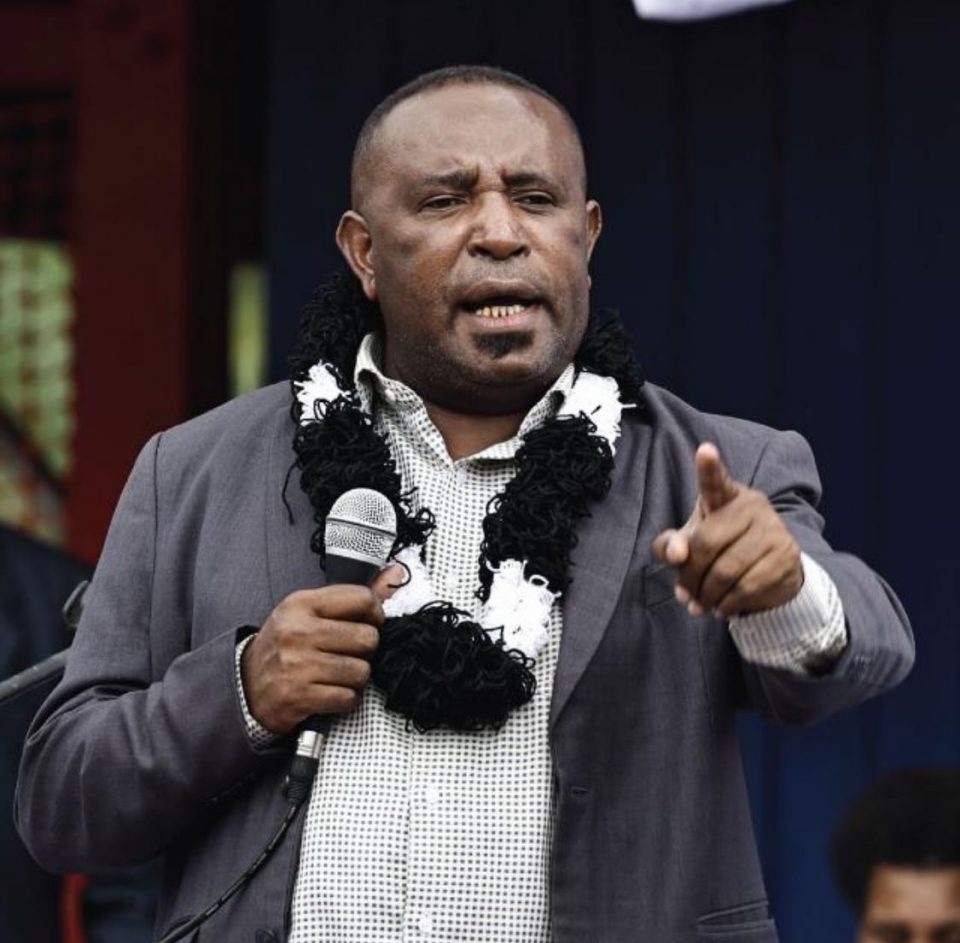Pictured is Wau – Waria MP, Marsh Narawec. SUPPLIED PICTURE
Wau-Waria MP Hon. Marsh Narewec has emphasised the need for increased reliance on data and technology in our government systems and activities.
Mr Narewec made this call as the country prepares to head into its census period, which is an activity that would benefit immensely from a prudent and effective information communication system. Mr Narewec said: “It has become clear that our current approach to data collection and ICT procurement is in dire need of reform. We are failing to leverage the opportunities available to us, and this must change.
The current silos in which our agencies operate are not only inefficient but also detrimental to the progress of our nation.” Mr Narewec stated that it was important to reform the system, with great emphasis on transparency and governance in ICT procurement.
“We have several key concerns regarding the impact of the government’s procurement practices on our local ICT sector. It is important to ensure to our national ICT procurement regulations and policies ensure a competitive bidding process and compliance with established best practices.
“Lack of transparency can lead to suspicions of corruption and mismanagement, which we must avoid at all costs,” Mr Narewec said.
He added that public funds must deliver value for money. “We demand a detailed cost breakdown and comparison with local market rates to verify the appropriateness of expenditures. Transparency in the procurement process is crucial to ensure fairness and public trust.
We call for the immediate release of detailed procurement information and an independent audit to uphold accountability. Mr Narewec also added that there must be a decentralisation of data collection in our systems.
“Firstly, the data collection process must be decentralised. By empowering Provincial Governments, District Development Authorities (DDAs), and Local Level Governments (LLGs) to take responsibility for data collection, we can ensure more accurate and comprehensive data.
“This localised approach will motivate these bodies to invest in and improve their data collection processes, as they directly benefit from the data’s accuracy and completeness. “Currently, these entities are already funding census preparatory work, so giving them the formal responsibility makes logical sense and enhances accountability,” Mr Narewec said. Mr Narewec said that the ICT sector, particularly our digital MSMEs, holds immense potential.
“It is not complicated to purchase and customise android templates for our needs. Local SMEs within our ICT cluster have the capability to develop and implement these technologies.
“However, the current government’s reluctance to uplift and support indigenous Papua New Guinean SMEs in the digital space is baffling.
“Transparent and fair procurement processes are essential for fostering a competitive environment that allows local businesses to thrive. We need to ensure our procurement practices do not undermine the confidence of local ICT companies. “Reliable internet connectivity is crucial for the successful implementation of digital data collection.
The National Information and Communications Technology Authority (NICTA) must expedite the issuance of licenses to providers like Starlink.”
Mr Narewec said: “These services can ensure that our android tablets used for data collection can remotely synchronise data back to a central data center efficiently. This is a critical step in modernising our data collection infrastructure and ensuring its reliability.
“The security and accessibility of our census data storage system remain unclear. It is imperative that we establish a safe and secure data storage solution that can be accessed by various agencies needing census data. This will not only enhance data utility but also ensure its protection against unauthorised access or breaches.”


